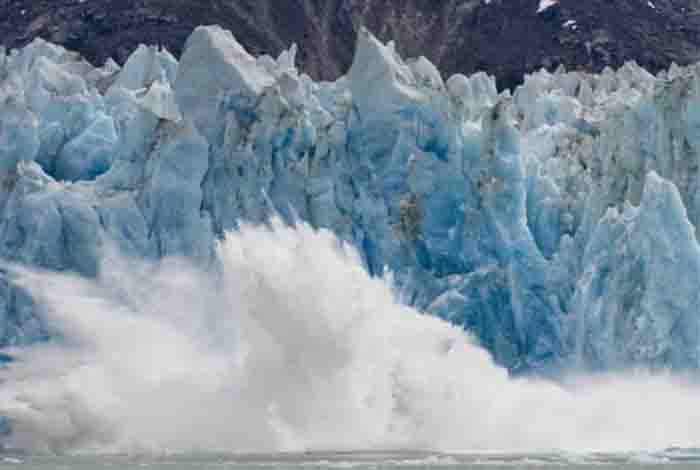
Global Climate Change and Melting Glaciers – Are We Responsible?

Around two years ago, a Former NASA scientist, James Hansen and his colleagues talked about a scenario, wherein water bursts coming from melting glaciers could alter the circulation of the oceans that may lead to an alarming rise in the sea levels and superstorms too. Climate change has become a serious concern nowadays and we can’t simply ignore it.
Hansen’s projection did not take any real-world data into consideration. In fact, it was based on computer simulation. A lot of other climate scientists gave skeptical views on this.
A new research related to ocean measurements depicts that melting glaciers are making the ocean waters around them fresh. And, this is preventing the process in which salty and cold waters sink beneath the shallow sea surface during winters, forming the “densest water on earth.”
This bottom water no longer gets formed in the two prime regions of Antarctica – West Antarctic Coast and Totten Glacier in East Antarctica. These are among the fastest melting regions of Antarctica. Now, when the cold water does not sink below, the layers of warm water can travel to the continental shelf and reach the base of the glaciers, maintaining its heat as the cold waters stay above. The warm water thus melts the glaciers and the large chucks of ice attached to them.
So, melting of glaciers in Antarctica triggers feedback loop in which, melting triggers some more melting. The ocean column gets divided with cold water on the surface and warmer water below.
This is not only a modelling study, but the effects were seen in the real ocean. The study has shown the evidence of this mechanism for the first time.
Hansen said that this study is a small-scale example of what they have written in the paper. If we remain on the “business as usual” model, the global warming will continue to rise, and freshwater injection rate will also increase. This process will keep on going in the coming years and even decades.
This study also resonates with the existing literature, which shows warming and freshening of ocean water in the Southern Hemisphere. This study is a part of growing evidence that the oceans of the world are changing at a rate faster than ever.
The process of Antarctic water formation getting impaired can be compared to Southern Hemisphere episode, which is already distressing and has drawn a lot of attention.
Stefan Rahmstorf, scientist at the Potsdam Institute for Climate Impact Research, says that the North Atlantic area is considered more susceptible to global warming. He says that he has found changes in deep dense water. There are many studies that point towards remarkable changes in deep water formation. One such study that took measurements from Southern Indian Ocean, where Antarctic water flows after leaving the Southern Ocean, showed that the water is getting fresher with time.
Although the present research has found that deep water is not getting formed in the two Antarctic regions, but the scientists cannot pinpoint when the change started to occur. So, it is possible that deep water stopped forming long ago, maybe before the period of extreme climate warming.
But, the mechanism, in which the freshening water restricts the sinking of colder waters at the sea surface, is expected to continue.
The study author, Silvano said that if the formation of the Antarctic bottom water slows, it would lead to massive global consequences. Because of this process, heat and carbon dioxide get buried underneath the ocean, and in the absence of this process, heat and CO2 would remain in the air.
Moreover, the issue of rising sea levels is a matter of worry as this will happen if the feedback between the ocean and glaciers continues.
Silvano said that the mechanism of sudden warming and melting of the ocean induced sea level rise at many other times or other climate change occurances, just like the last glacial maximum, when the sudden sea level rise was about 5 meters per century. He also added that due to global warming, some areas of Antarctica will have no water formation at the bottom.










